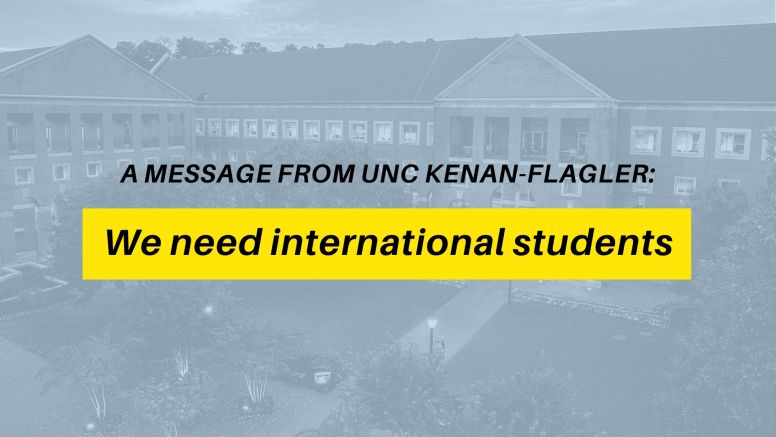News & Stories
We need international students

Professor Brad Staats, associate dean of MBA Programs, writes about the importance of international students at UNC Kenan-Flagler and for the U.S. economy.
To suspend H-1B visas for skilled workers is a bad idea – for people, for business schools, for companies and for the U.S. economy.
Talented young people around the world value one of America’s greatest competitive strengths: higher education. Today the appeal remains but barriers – from rhetoric to visa restrictions – have caused a decline in international students in the U.S. In particular, applications from international students to U.S. business schools declined by 13.7% in 2019, even as they increased to Canadian and European programs, according to the Graduate Management Admission Council. Blocking these visas will make this problem even worse.
Business schools have long understood the importance of having international students. In addition to the individual qualities they bring, they have a multiplicative effect in the classroom and as part of our community with their perspectives on operating in different countries and diverse experiences. They are a vital part of their classmates’ learning, and together all students develop global competencies – attitudes, skills, knowledge and business practices – that are absolutely vital for success in the business world. This diversity of cultural experience and diversity of thought are what any business leader needs – and that kind of leader is what companies need for their organizations to compete and succeed.
Competitively, prospective graduate students today have more choices from a global standpoint than they’ve ever had at any point in history. So, to the extent that we make it less attractive to come to the U.S., international students won’t come and benefit from our education and graduate as well-trained leaders. And some U.S. students might choose to go to other countries to get the international perspectives and interactions they can no longer get at home. If that happens, the U.S. suffers because we’re not developing great business leaders who stay here and lead our organizations in the future.
This is not just an MBA challenge for business schools. Many students come from around the world to join our PhD Programs. In turn they graduate and support U.S. schools through their teaching and research. There has long been a short supply of business professors for US schools and that’s now exacerbated by the growth and success of business schools in Europe and Asia. As a nation, we need more faculty to educate our students and produce the cutting-edge research that addresses business opportunities and problems. If international students go elsewhere then this virtuous cycle is broken.
The question remains, what happens when talented international students join the U.S. workforce? Research does not show a substitution effect. Do you believe we are cutting up shares of the same pie or do you believe that we can grow the pie and create a larger share for everyone? When it comes to our international students who graduate and then work here, the answer is that they create more opportunities. We all benefit.
So, whether from a business school perspective or the country’s standpoint, blocking these visas is not good for us. We don’t want to lose in the competition for the world’s top talent. If we close off paths for them in the U.S., we are worse off because we lose that growth.
Flags that hang in front of our building at UNC Kenan-Flagler celebrate our international students. Each year we hang new flags – one for each country represented by the student body. They are a reminder that we are a globally diverse community, and stronger and better because of it.
Education has a special kind of power to improve people’s lives. It doesn’t just change the life of the graduates but also their families, their communities and the companies they serve. Ours is a great calling and mission. It’s an investment in people – our greatest asset – and in the future.